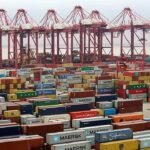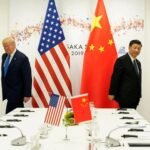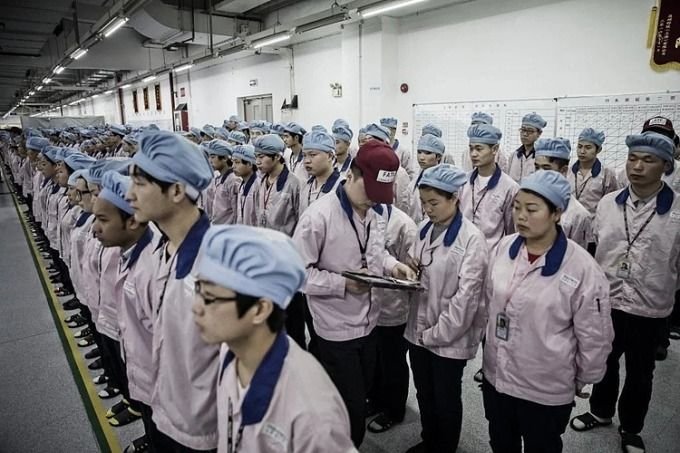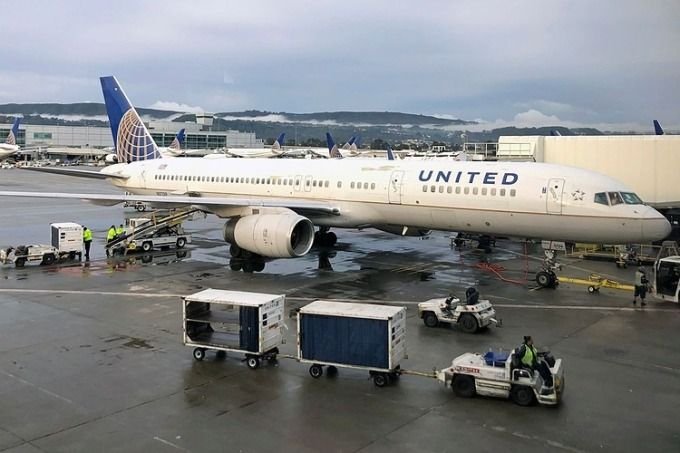Almost all of Apple’s iPhones are made by Foxconn’s Hon Hai Precision Industry in Zhengzhou and by Pegatron Corp at an assembly site near Shanghai.
`I cannot imagine a scenario where the supply chain is not disrupted. If there is a major hiccup in raw materials, manufacturing, assembly, testing and shipping it will create disruption
Last week, Bloomberg reported that Apple had increased production to meet higher-than-expected iPhone demand.
Apple has about 10,000 direct employees in China, in charge of corporate and retail operations in this market.
Roll call of workers inside Pegatron Corp’s factory in Shanghai in 2016. Photo: Bloomberg
Many of those employees went home for a few days for the Lunar New Year break.
`Supply chain disruption is a concern if Foxconn employees and other component manufacturing centers in China are restricted from traveling,` said Wedbush Securities analyst Dan Ives.
Foxconn said it is monitoring the situation in China and following all recommended health practices.
Confirmed cases of Wuhan pneumonia are increasing in Henan province, where Hon Hai’s Zhengzhou facility is located.
Henan accounted for a quarter of China’s smartphone exports last year.
Apple already has a scenario in place for extreme cases like Wuhan pneumonia, by requiring key components to have dual origins, both in terms of supplier and geography.
Apple adopted a contingency policy after the 2011 earthquake and tsunami that occurred in Japan.
Although Apple has no stores in Wuhan, there are dozens of retail locations across China.
Along with the local workforce, Apple also depends on many American employees who fly back and forth across the Pacific to China.
Apple CEO Tim Cook will soon take questions about the impact of Wuhan pneumonia on the company’s operations from investors and analysts at Apple’s conference Tuesday, discussing business results.










